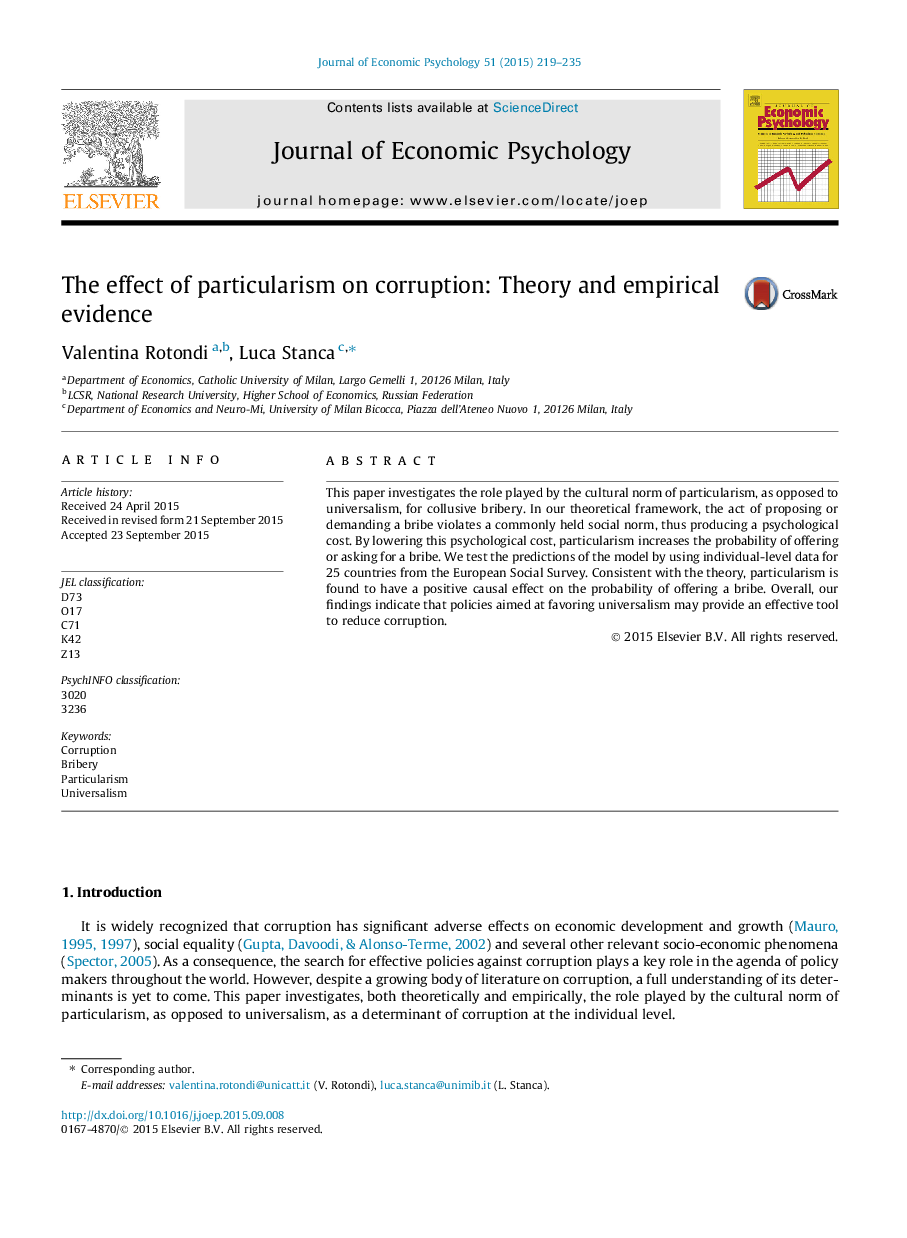| Article ID | Journal | Published Year | Pages | File Type |
|---|---|---|---|---|
| 7244553 | Journal of Economic Psychology | 2015 | 17 Pages |
Abstract
This paper investigates the role played by the cultural norm of particularism, as opposed to universalism, for collusive bribery. In our theoretical framework, the act of proposing or demanding a bribe violates a commonly held social norm, thus producing a psychological cost. By lowering this psychological cost, particularism increases the probability of offering or asking for a bribe. We test the predictions of the model by using individual-level data for 25 countries from the European Social Survey. Consistent with the theory, particularism is found to have a positive causal effect on the probability of offering a bribe. Overall, our findings indicate that policies aimed at favoring universalism may provide an effective tool to reduce corruption.
Related Topics
Social Sciences and Humanities
Business, Management and Accounting
Marketing
Authors
Valentina Rotondi, Luca Stanca,
